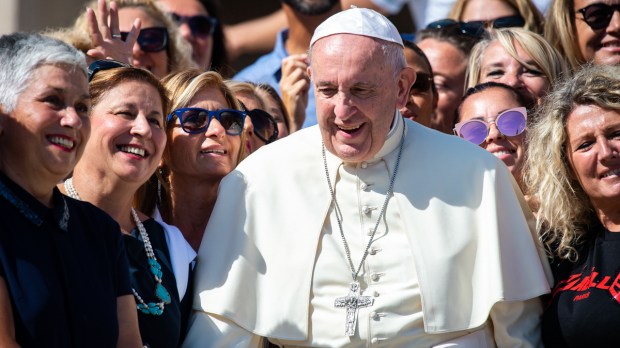In January of this year, Pope Francis published the Motu Proprio Spiritus Domini, which modified canon 230 and opened the ministries of lector and acolyte also to women. In some contexts, this decision was completely unexpected; in others, it seemed to be long overdue.
Any time the topic of women in the Church is mentioned, similar reactions arise: on the one hand, a certain fear, on the other hand, a growing sense of impatience due to the slow pace at which changes are taking place.
What is happening today in the German Church challenges us and gives us food for thought.
Pope Francis recognises in Evangelii Gaudium 104 that demands for women’s legitimate rights raise serious and challenging questions for the Church that cannot be superficially avoided. He clearly recognises (as he also did in Christus Vivit 42) how much the long history of male chauvinism has heavily influenced ecclesial practices. This is a fact that needs to be acknowledged and properly managed. But it is not just about women, nor is it just a women’s problem.
What is hidden here is perhaps an opportunity for renewal for the whole Church: in order to live more fully what was intended of herself at the Second Vatican Council. The ecclesiology of the Council is in fact an ecclesiology of communion which, starting from the equal dignity of all the baptised, sees all ministries as ordered to the service of the People of God. The word «synodality» is a way of being in the Church, which also makes room for a wider ministeriality among all the baptised (without taking anything away from the priestly ministry; quite the opposite). The recent appointment of Sr. Nathalie Becquart as Under-Secretary of the Synod of Bishops is another sign from the Pope that confirms this trend.
The theological principles are clear, but the road to cultural change and practice is still long. In this area, women are encouraging the need to ask questions and to set out on the way. What is the difference between Tradition as the source of Theology and cultural traditions, which are limited and surmountable? Why is it so difficult to apply and live theological principles? What are the cultural barriers? How can these barriers be countered in the formation of priests and laity? On the matter of the contribution of women in the Church, what are the principles that should guide action? What clues can guide the reading of the different contexts: the most restless and the most apparently immovable?
There are many questions, and it is also necessary to know how to answer them, considering the different cultural contexts. When the Holy Father speaks about this topic, he always repeats that it is a matter of “starting processes.” At the Institute of Higher Studies on Women (an institute erected by the Pontifical University “Regina Apostolorum” in 2011), we have asked ourselves how to start these processes, and we have understood that a necessary condition is to train the agents of change. For this reason, in 2019 – 2020 we proposed the first Post Graduate Certificate entitled “Women and Church.” The success of the first edition has allowed a second edition, which this year will be held from 19 June to 3 July, in collaboration with the Pontifical University of Saint Thomas Aquinas, the Pontifical Salesian University, the Pontifical Urbaniana University, the Pontifical Faculty of Educational Sciences «Auxilium» and the Pontifical Institute of Theological Studies for Consecrated Life «Claretianum». The initiative is also supported by the Academy of Catholic Leaders of Latin America and the Conference of Rectors of the Pontifical Roman Universities ad Institutions. This year’s diploma is entitled: «Women and Church: how to activate and promote effective collaboration between men and women in the Church».
The program is divided into three thematic modules and workshops. The first module is socio-historical and provides the basis of the historical development in which the different cultural issues are situated, focusing on strengths and weaknesses, on acquired convictions and problematic aspects of the inculturation of the Catholic faith in its social dialogue, in order to look to the future with a proactive attitude. The anthropology module (philosophical and theological anthropology) explores the meaning of sexual difference in the human being and the complexity of the elements that come into play in the formation of sexual identity, to illustrate how it is possible to express it in collaboration and reciprocity between men and women in ecclesial contexts. The ecclesiological and Mariological module takes up the most salient points of the conciliar and post-conciliar Magisterium about the laity and women, in order to create avenues for creative, faithful and prophetic application. It analyzes what the figure of Mary says about the identity and mission of women in the Church, presents the status quaestionis, some critical points and possible paths to follow. The purpose of the workshops, which are held at the beginning, in the middle, and at the end of the course, is to assimilate and put into practice the contents of the lessons.
The program does not pretend to provide all the answers. It is rather intended as a laboratory of ideas, which can open up perspectives, create synergies and thinking, in creative fidelity to the Holy Spirit.
~
Diploma of the Institute of Higher Studies on Women and of the Pontifical Athenaeum “Regina Apostolorum “

